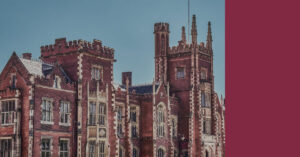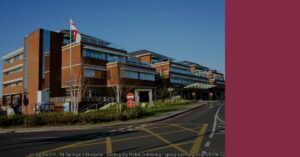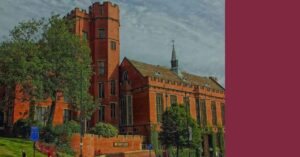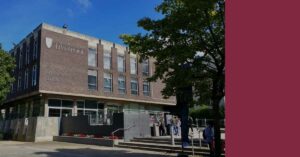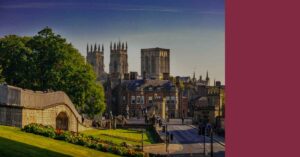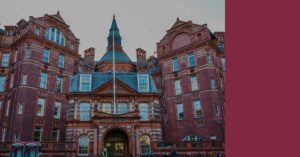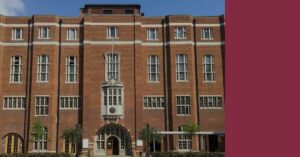Welcome to our UK Medical School Review series. In this series, we work with current students to produce an in-depth overview of each UK Medical School, covering what it is like to study there, how the course looks and what you need to get in.
Today, we are focussing on Imperial Medical School. Ameel, an Imperial 2nd Year Medic, shares his experiences and insights as a current student.
Let’s get started with an overview of Imperial Medical School…
Overview Of Imperial Medical School
About Imperial Medical School
The Medical School actually dates back to 1823 when Charing Cross Hospital Medical School was founded, and then The Imperial Faculty of Medicine was established in 1997 through a number of West London medical schools such as Westminster. The school has multiple medical campuses across London and partnerships with a range of NHS Trusts, Hospitals and Clinics. This gives students the opportunity to access an incredibly large and diverse patient population. Fortunately, Imperial really value clinical learning experience, so you’ll have no choice but to utilise this opportunity.
Imperial Medical School Alumni
Imperial has an amazing portfolio of notable staff and alumni, which includes names like Sir Alexander Fleming (Nobel Laureate, Physiology and Medicine), Christopher Addison (Ex-Leader of the House of Lords, Ex-Minister for Health), Sir Roger Bannister (neurologist, runner of the first four-minute mile), Augustus Waller (the invention of the electrocardiogram (ECG) and Baroness Edith Summerskill (Politician).
Imperial Medical School
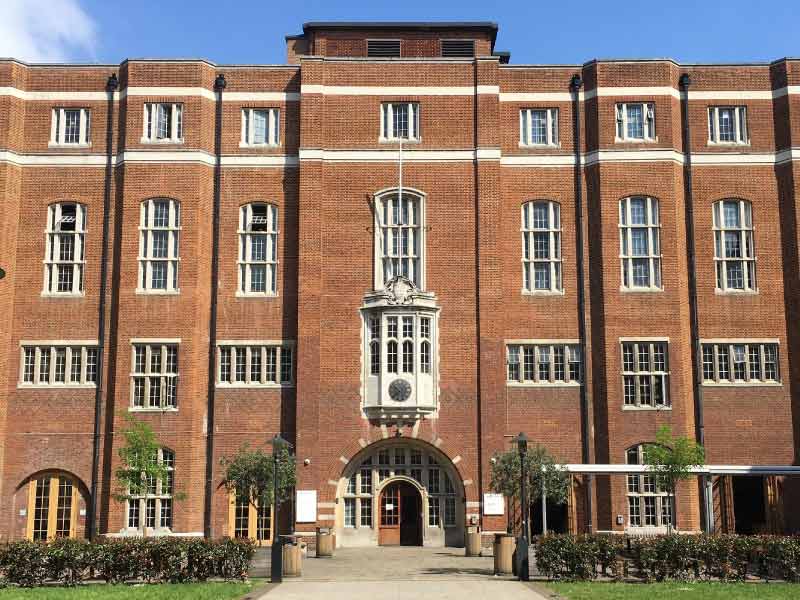
- University Age: 201
- UK Ranking: 4th
- Pint Price: £5.00
- Alumni Notability: 10/10
- A-level Requirements: AAA
- Places Available: 345
- Applicant Success Rate: 16.6%
- Teaching Style: Integrated
- Interview Style: MMI
- Admissions Test: UCAT
Why did you choose to study at Imperial?
“One of the main reasons I chose Imperial was to do with the course, the fact that we are able to get early clinical exposure starting in the 1st term of 1st year helps to enhance your patient communication skills and instil confidence from an early standpoint.
Undoubtedly for Imperial, research is also at the forefront and as a world leader in medical developments, it definitely drew me, the ability to experience these developments at quality teaching hospitals in London such as Charing Cross Hospital and Chelsea and Westminister Hospital is something I looked for.
Furthermore to be able to expand on this research through an intercalated degree at Imperial was something that I saw as an incredible opportunity. I think also the breadth of societies Imperial offers (one of the most out of UK universities) also was important for me to give me the chance to continue my extra-curricular activities through university.”
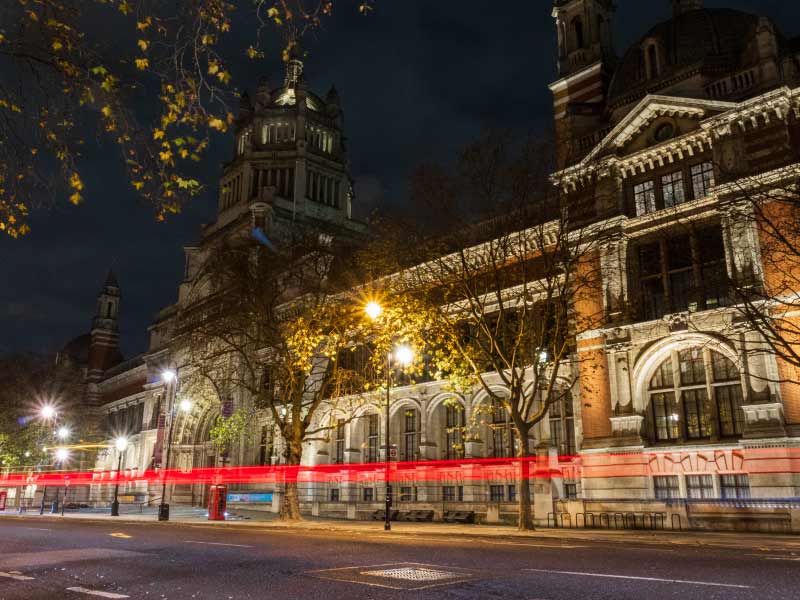
What is the best thing and worst thing about your Medical School?
“Personally, I think the best thing about my medical school is the quality of the experience and teaching you get. The curriculum helps you to develop a range of different skills, not only just pure clinical skills but thought-provoking elements that enable you to think about medicine in a holistic way. That is really well supported by the great network/structure Imperial has which enables students to have the opportunity to apply these practices very regularly through placements and communication skills sessions.
Medical School Rankings
The following link will take you to the Complete University Guide Medicine League Table. Here, you can see that Imperial Medical School takes the 6th position with an overall score of 98%:
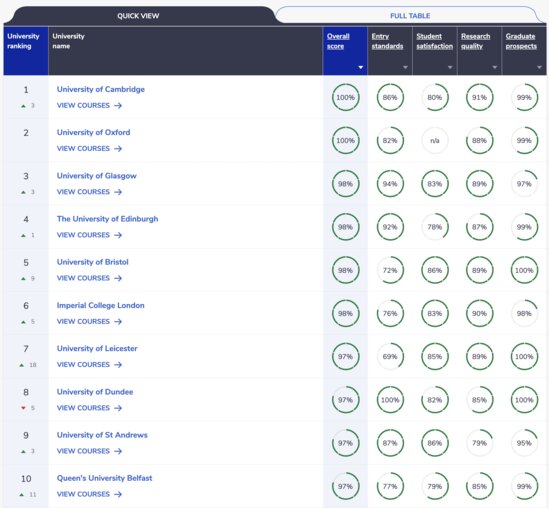
The table also highlights 99% graduate prospects for Imperial Medics so there’s little to worry about once you graduate! Unsurprisingly, Imperial ranks 5th for research quality (below King’s and above Edinburgh).
Rankings will, of course, differ between other tables; the Guardian includes different aspects to the Complete University Guide. When making your own decision on which table to look at, think about what you place more importance on, such as spending per student or career prospects. Keep in mind that all Medical Schools are highly ranked with excellent ratings across the board.
Imperial Medical School Fees And Financial Support
The yearly tuition fees for MBBS/BSc Medicine is £9,250 for home students and £46,650 for international students. Tuition fee loans are offered to all UK students by the Government and cover the course fees in full. Fees do not have to be paid upfront. There are also additional course costs, such as for travel, but a lot of the additional costs are optional.
Imperial Scholarships, Grants and Bursaries
Imperial offer one of the most generous university financial support schemes. They provide a bursary to support Home students with annual household incomes up to £60,000.
There is also a wide range of scholarships available for students studying at Imperial, including the President’s Undergraduate Scholarships.
What are the living costs like?
“One of the cons of going to a London university can be the cost of things at times with London well known to be on the more expensive end. In terms of the cost of a pint, it can vary depending on where you go in London but some pints at Wetherspoons can be around the £3-6 mark, it really depends where you go, to be honest.
In terms of the accommodation costs per week, again, that depends on what accommodation you get. The rooms at South Kensington are often around the £240 a week mark, whereas the rooms in North Acton are at around £150 a week. In terms of public transport costs as a student, you can get discounts on TFL travel but in a week, one can expect to spend maybe around £20 a week on travel, again depending on how much travelling you’re doing.”
Not sure where to start with your Medical School application?
Our Complete Bundle provides support for your Personal Statement, UCAT, BMAT and Interview and guides you to a successful application.
With our Complete Bundle, we guarantee that you will get at least one offer to study Medicine, or your money back.
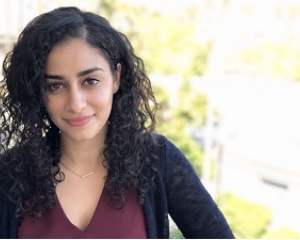


MEDICINE MASTERY BUNDLE
Not sure where to start with your Medical School application?
Get full, comprehensive support for your medical school application with 6med’s Medicine Mastery Bundle. Access everything you need for success as soon as you sign up.
UCAT.Ninja
UCAT.Ninja
What Is Studying At Imperial Medical School Like?
Medicine at Imperial is taught through traditional teaching methods, including lectures, small group teaching, computer workshops, laboratory classes and problem-based learning (PBL).
Imperial’s Medical Programme is focused on the development of Professional Values and Behaviours, Professional skills, and Professional Knowledge, in line with the GMC’s Outcomes for Graduates. The curriculum is split into 3 phases which provides opportunities such as:
- More opportunities for clinical skills training and patient experience.
- A case-based learning approach to facilitate integration and translation of scientific knowledge to clinical care.
- A Programmatic Assessment strategy to enable you to build your knowledge throughout your studies.
- A focus on the application of science and research skills.

Imperial Medical School Degree Content
There is one Undergraduate Medicine course offered at Imperial (MBBS/BS). The Graduate course is currently suspended whilst they update the curriculum. The Postgraduate Programmes are all Masters.
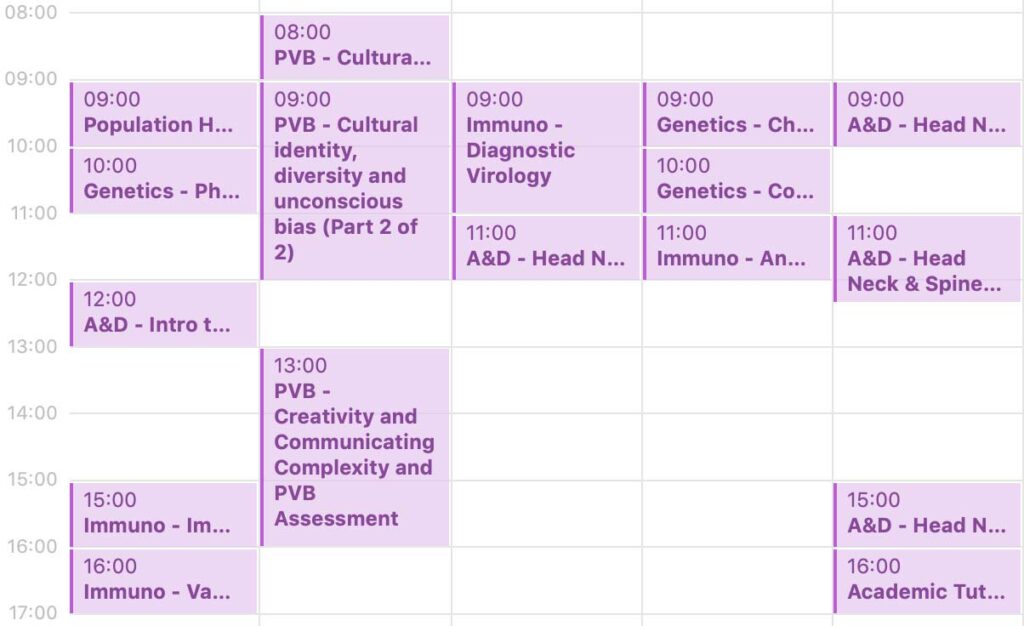
The Undergrad Course programme lasts 6 years and as mentioned earlier, it is split into 3 phases. Let’s look at these phases now.
Phase 1 (Years 1-3)
Phase 1a:
- Principles of Medicine
- Bioregulatory Systems 1
- Clinical Science Integrative Cases 1
- Patients, Communities and Healthcare 1
- Lifestyle Medicine and Prevention 1
Phase 1b:
- Bioregulatory Systems 2
- Clinical Science Integrative Cases 2
- Patients, Communities and Healthcare 2
- Lifestyle Medicine and Prevention 2
- Clinical Research and Innovation
Phase 1c:
- Clinical Science Integration 3
You will also undertake a module covering:
- Patients, Communities and Healthcare 3
- Phase 1 Medicine
- Phase 1 Surgery
- Medicine in the Community Apprenticeship (MICA)
- Synoptic Clinical Skills and Written Assessment
Phase 1a:
- Principles of Medicine
- Bioregulatory Systems 1
- Clinical Science Integrative Cases 1
- Patients, Communities and Healthcare 1
- Lifestyle Medicine and Prevention 1
Phase 1b:
- Bioregulatory Systems 2
- Clinical Science Integrative Cases 2
- Patients, Communities and Healthcare 2
- Lifestyle Medicine and Prevention 2
- Clinical Research and Innovation
Phase 1c:
- Clinical Science Integration 3
You will also undertake a module covering:
- Patients, Communities and Healthcare 3
- Phase 1 Medicine
- Phase 1 Surgery
- Medicine in the Community Apprenticeship (MICA)
- Synoptic Clinical Skills and Written Assessment
Phase 2 (Year 4)
You will select one of the following specialisms:
- Anaesthesia and Critical Care
- Biomedical Engineering
- Cancer Frontiers
- Cardiovascular Sciences
- Endocrinology
- Gastroenterology and Hepatology
- Global Health
- Molecular and Translational Haematology
- Humanities, Philosophy and Law
- Immunity and Infection
- Management
- Neuroscience and Mental Health
- Pharmacology
- Remote Medicine
- Reproductive and Developmental Sciences
- Surgical Design, Technology and Innovation
- Translational Respiratory Medicine
- Anaesthesia and Critical Care
- Biomedical Engineering
- Cancer Frontiers
- Cardiovascular Sciences
- Endocrinology
- Gastroenterology and Hepatology
- Global Health
- Molecular and Translational Haematology
- Humanities, Philosophy and Law
- Pharmacology
- Remote Medicine
- Reproductive and Developmental Sciences
- Surgical Design, Technology and Innovation
- Translational Respiratory Medicine
- Immunity and Infection
- Management
- Neuroscience and Mental Health
Phase 3 (Years 5-6)
Phase 3a:
- Child Health
- Women’s Health
- Psychiatry
- The Ageing Patient
- Surgery and Cancer
- Medicine
- General Practice and Primary Healthcare
- Specialty Choice Module 1
- Clinical Reasoning
Phase 3b:
- Acute Care
- General Practice Student Assistantship
- Specialty Choice Module 2
- Student Apprenticeship
- Elective
What Makes Imperial Medical School Unique?
What makes your Medical School unique?
“To be honest, I think when it comes to Imperial Medical School, one of the most unique elements has to be the fact that it is ultimately a world leader in medicine that has had a tremendous impact on health policies/decisions and treatments across many countries, none more so than its significant impact during the COVID-19 pandemic in guiding government plans. Then ultimately I think the students are often able to reap the rewards of interacting with such influential figures in their fields of medicine.
To be able to interact and learn from doctors who are at the top of their game and have great positive impacts on the community enables the students to understand what it takes to get to that point, and it also gives students a wide range of experiences to learn from. To be able to hear from these doctors can often be inspiring and also help to spark particular interests in certain areas of medicine, it can also help give you a realistic insight into the trials and tribulations that doctors face over their journeys in medicine.”
Imperial Selection Process
The Medical School receives over 2,400 applications each year and makes 600 offers. It is incredibly competitive. Therefore, as you can expect, there is a rigorous selection process led by a selection panel of teachers who decide who receives an interview invitation. But what criteria do they look for? This is what Imperial says makes up their selection criteria:
- A-level or equivalent predicted (or achieved) grades
- BMAT scores
- Evidence of commitment to the values of the NHS Constitution
- Motivation and understanding of medicine as a career
- Community activities
- Leadership and teamwork
- Extracurricular interests
- Referee’s report
If you are unsure about the admissions process, our Complete Bundle goes over every step of the application meaning you can be certain you have the best chance of being accepted.
We’ll now break down these sections to see the standard that Imperial expect to be offer worthy.
Imperial Medical School Entry Requirements
A-level and IB Requirements
| Exam | Undergraduate Medicine |
|---|---|
| A-levels | AAA – All As in Biology and Chemistry. |
| IB | 38 points overall, to include: 6 in Biology Chemistry at higher level. |
The typical A-level offer (made to at least 80% of A-level applicants) is A*AA (A* in Biology or Chemistry). For IB, it is 39 points. Therefore, to give yourself the best chances of receiving an offer, always aim as high as you can, and remind yourself that the minimum entry requirements are quite literally the minimum entry requirements. Fellow applicants will be achieving top grades, so you need to as well to stand a chance.
Medical School application causing you confusion?
Our Complete Bundle provides support for your Personal Statement, UCAT, BMAT and Interview and guides you to a successful application.
With our Complete Bundle, we guarantee that you will get at least one offer to study Medicine, or your money back.



MEDICINE MASTERY BUNDLE
Craft an application worthy of Imperial with 6med!
6med’s Medicine Mastery Bundle provides you with the best support for your Personal Statement, UCAT and Interview, ensuring you will earn your offer.
Personal Statement Crash Course
Personal Statement Crash Course
Imperial Medical School Personal Statement
Imperial want you to show evidence of commitment to the values of the NHS Constitution. This means it is essential to not only show understanding in your personal statement, such as being able to talk about respect and dignity, but also to demonstrate evidence from work experience that relates to these values.
Therefore, in your Personal Statement, we think it is essential that you show understanding and demonstrate the different qualities of a good doctor.
As mentioned above, any relevant work experience you have undertaken is necessary as it will show your commitment to learning and your understanding of healthcare settings. If you struggle to complete any work experience, then other experiences such as voluntary work, hobbies or part-time jobs will demonstrate your development of the skills required to be a doctor, and emphasise that you are more than just your textbooks!
There are a lot of writing skills and techniques that come in handy when it comes to making your personal statement stand out. If you’re looking for a way to learn these skills and spice up your statement, 6med’s Personal Statement Bundle provides you with all the tools you could need to impress the admissions team!
Imperial Medical School Admissions Tests
UCAT
Imperial previously used the BioMedical Admissions Test (BMAT) in its application process, but since its removal in 2024, applicants for all medical schools in the UK are required to sit the University Clinical Aptitude Test (UCAT).
Not sure about what to do in the UCAT? Start with our Introductory UCAT Guide!
Imperial Medical School Interview
MMI Interview Style
Imperial use MMI style interviews. There are 7 different stations and students have 5 minutes allocated to each station. These topics include teamwork and leadership, motivation to study Medicine, understanding the role of a doctor, empathy and breaking bad news, ethics scenarios, resilience and contribution to the School of Medicine.
As we mentioned earlier, Imperial wants you to show evidence of commitment to the values of the NHS Constitution. Make sure you review the values and know your personal statement inside out before your interviews.
Interview Scoring
Answers are given 7 points for content (what you say) and 3 for communication (how you say it). Mostly, there is no right or wrong answer, the aim for the interviewers is to assess your ability to explain your thinking.
If you are unsure of what is expected of you in a Medical School Interview, our Interview Bundle might be what you are looking for.
Example Imperial Medical School Interview Questions:
- Why would you like to study at Imperial? (2018)
- What makes Imperial better than other medical schools in London? (2021)
- If you were the Secretary of State for health, what changes would you make? (2020)
- With the current organ shortage in the United Kingdom, should we legalise the sale of organs? (2019)
- Which qualities will make you a good doctor? (2021)
- What did you learn from your work experience and how will this help you in the future? (2018)
- How have you shown commitment to continuous learning? (2020)
- When have you shown compassion? (2019)
- How do you balance work and all your outside activities? (2018)
- If you had £100,000 to spend, would you give it to a three-year-old needing a heart transplant or 100 older patients needing hip replacements? (2021)
- Can a doctor withhold information about a patient who has broken the law? (2021)
Extra-Curriculars at Imperial Medical School
Outside of study time, what do most people get up to?
“Outside of studying most people like to get involved in a variety of activities. One thing that is definitely popular amongst the students is the Union Bar which is located next to Beit Hall near the South Kensington Campus. In general, students like to go there to chill out and enjoy themselves with their friends. A word of caution if you go there on a Friday, make sure to leave very early to get a table as it gets very packed!
Also, Imperial Medical Students like to spend a lot of their time at the Reynolds Building (Imperial School of Medicine Building located next to Charing Cross Hospital). The Reynolds Building has its own bar and is quite the occasion on a Wednesday Sports Night. In terms of extra-curricular activities, a lot of people like to get involved in the sports teams with Imperial Medical School having its own teams separate from Imperial College.
There are also countless other activities to get involved with. Many students take part in music societies as well as the cultural societies which always host great events.”
What is the Imperial accommodation like?
“The accommodation at Imperial is at a few different sites. There are halls that are located in South Kensington right next to the campus, these are Beit Hall, Southside Hall and Eastside Hall. These rooms tend to be quite expensive but they have the benefit of being so close to campus. There are also halls located in North Acton: Kemp Porter Hall and Woodward Hall. These tend to be cheaper and the rooms are a bit bigger than at South Kensington, but it is a little further to get to campus. They also house the largest number of students (over 700 in KP and over 600 in Woodward).
Getting to the 2 main Imperial Medicine teaching sites (Charing Cross Hospital and South Kensington Campus) takes about half an hour. There are also a few more accommodation sites, Wilson House (in Paddington), Xenia (in Waterloo) and Chapter Islington (in Islington), these house fewer students in general.”
Imperial Medical School Contact
Email: [email protected]
Telephone: +44 (0)20 7594 7259
Postal address:
Faculty of Medicine
Imperial College London
Level 2, Faculty Building
South Kensington Campus
London SW7 2AZ, UK
Advice for prospective Imperial Medical School Students
What advice would you give to a first-year student starting at Imperial Medical School?
“My advice to a first-year student starting at Imperial Medical School would be to try and take things in your stride. Initially, the step from school/college to a Medical degree is quite a significant one but once you start to gauge an understanding of what is required and are flexible in the way you learn, it will come naturally. Ultimately, you got into medical school for a reason so have confidence in yourself.
I would also say as a 1st-year Medical student, there is still plenty of free time to relax so use this as an opportunity to get involved in as many social/extra-curricular activities as possible. At Imperial, there is almost every possible society you could think of, so have a go, try new things, meet new people in order to make the most out of your time and find something you may really enjoy.”
Check out our other UK Medical School Reviews:
Not sure where to start with your Medical School application?
Our Complete Bundle provides support for your Personal Statement, UCAT, BMAT and Interview and guides you to a successful application.
With our Complete Bundle, we guarantee that you will get at least one offer to study Medicine, or your money back.



MEDICINE MASTERY BUNDLE
Not sure where to start with your Medical School application?
Get full, comprehensive support for your medical school application with 6med’s Medicine Mastery Bundle. Access everything you need for success as soon as you sign up.
MMI Crash Course
MMI Crash Course




